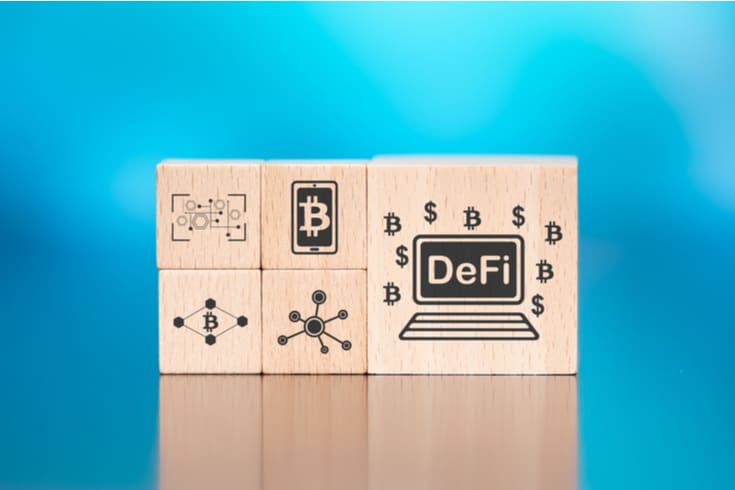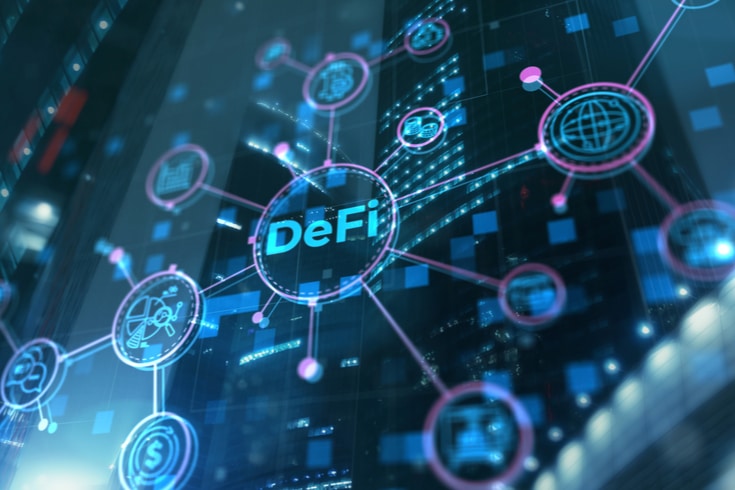Legal Challenges in Decentralized Finance (DeFi)

Blockchain technology is being used in a variety of fields. Crypto assets (virtual currencies) have enabled currencies (assets) that do not involve a central bank, and a variety of NFTs have been issued for everything from business to art. Furthermore, decentralized finance utilizing blockchain technology enables complete P2P (Peer to Peer) financial transactions without administrators or intemediaries.
In these Web3 fields, legislation has yet to catch up, which means that businesses operating in this area need to carefully consider laws such as Japan’s Payment Settlement Act and Financial Instruments and Exchange Act in order to create a viable business model.
In this article, we will provide an overview of the laws and regulations governing DeFi (decentralized finance) and DEX (decentralized exchange) utilizing blockchain technology.
Understanding DeFi (Decentralized Finance)
DeFi stands for Decentralized Finance, which utilizes public blockchain technology to establish a decentralized financial system. With DeFI, P2P financial transactions can be executed autonomously using blockchain technologies such as smart contracts, independent of a central bank or financial institution.
In contrast to decentralized finance, traditional financial institutions are commonly referred to as centralized finance or CeFi for short. This refers to a financial system where the central bank is responsible for issuing and managing currency, while financial institutions handle transactions.
Reference: Financial Services Agency | Efforts on Decentralized Finance
DeFi and DEX in Japanese Law

There exist multiple types of DeFi.
- DEX
- Lending
- insurance
- derivatives project
Among the various types of DeFi, decentralized exchanges (DEX) are gaining popularity.
DEX stands for Decentralized Exchange, where blockchain technology and smart contracts are utilized to trade crypto assets (virtual currencies) and tokens. Smart contracts automatically execute predetermined processes when specific conditions are met.
Unlike DEX, which is a decentralized exchange, a centralized exchange managed by an administrator is referred to as CEX. CEX has been in operation for a considerable period of time and is currently more widely used than DEX.
DEXs allow automated trading of crypto assets (virtual currencies) and tokens using smart contracts. The advantage of DEX is that it allows for quick transactions.
In addition, the use of smart contracts can reduce transaction fees compared to CEX, where an administrator is present, thereby reducing costs.
DeFi Legal Challenges

As DeFi is a fairly recent concept, it presents various legal challenges. We will provide explanation on the legal issues of DeFi, focusing on DEX in the following.
DeFi legal issues can be classified into the following categories:
- LP Tokens – Legal Considerations
- Legal Issues Regarding Governance Tokens
- Legal Matters Pertaining to Transactions Involving Crypto Assets (Virtual Currency)
Legal Issues Concerning LP Tokens
The term LP Token refers to Liquidity Provider Token, which is a type of token that rewards users who contribute to the DEX mechanism. It is essential to consider the connection between LP tokens and “collective investment scheme equity” and “electronic record transfer rights,” as outlined in the Financial Instruments and Exchange Act.
According to Article 2, Paragraph 2, Item 5 of Japan’s Financial Instruments and Exchange Act, a program will be assessed as a collective investment scheme if:
- A person with rights may make an investment or contribution of money, or other assets.
- The business operates using funds contributed by investors, among other sources.
- The holder of the right is entitled to receive a portion of the profits generated from the invested business or a distribution of property related to the invested business.
The right to transfer electronic records pertains to the transferable value of property utilizing an electronic information processing system, such as those intended for distributing business profits to holders. In the case of LP tokens falling under this category, compliance with Japanese laws and regulations, including financial instrument business registration and disclosure obligations, is required for issuance.
When issuing LP tokens, it is crucial to assess whether they fall under the category of collective investment scheme equity or electronic record transfer rights, based on the value that will be provided by the LP tokens. This assessment is of utmost importance.
Legal Considerations for Governance Tokens
A governance token is a type of token that grants its holders the ability to take part in the decentralized protocol that operates the DEX. With ownership of governance tokens, you have the power to affect adjustments within the governance system.
This particular governance token has the potential to be traded for other virtual currencies or crypto assets. It is important to note that depending on the circumstances, this governance token may fall under the legal definition of “crypto assets” as outlined in Article 2, Paragraph 5 of Japan’s Payment Services Act. Additionally, the issuance of governance tokens may fall under the category of a “crypto asset exchange business” as defined in Article 2, Paragraph 7 of the Payment Services Act.
Whether the issuance of governance tokens falls under the category of “crypto asset exchange business” (as defined in Article 2, Paragraph 7 of the Payment Services Act of Japan) depends on whether consideration is generated for acquiring the governance tokens.
When issuing a governance token, it is crucial to ascertain whether it falls under the classification of crypto asset exchange business concerning the consideration for obtaining the governance token.
Legal Issues Related to Crypto Asset Transactions

Certain decentralized exchanges (DEXs) utilize a system in which users can obtain cryptocurrency by trading other forms of cryptocurrency. In the event that such a system is implemented, it may be classified as a “crypto asset exchange business” under Article 2, Paragraph 7 of the Payment Services Act of Japan.
As previously stated, DEX typically employs a smart contract mechanism.
If the smart contract facilitates the automatic exchange of crypto assets, the DEX would not have any entity that conducts the crypto asset exchange business. As a result, the DEX is not subject to regulation under Japan’s Payment Services Act since there are no entities that are subject to regulation.
Talk to a Lawyer About Decentralized Finance (DeFi)
We have elucidated the laws and regulations governing DeFi utilizing blockchain technology.It is noteworthy that regulatory provisions vary depending on the token’s character, thus necessitating a profound comprehension of blockchain and smart contract mechanisms. Moreover, it is important to note that this sector is still undergoing legislative development, with multiple amendments to existing laws.
If you are considering decentralized finance through blockchain technology, we advise seeking the counsel of a lawyer with expertise in these areas.
Office’s guidance on countermeasures
Monolith Law Office is a legal firm that boasts extensive expertise in IT, particularly the Internet and law. We offer comprehensive assistance to businesses operating in the field of crypto assets and blockchain.
Category: IT





















